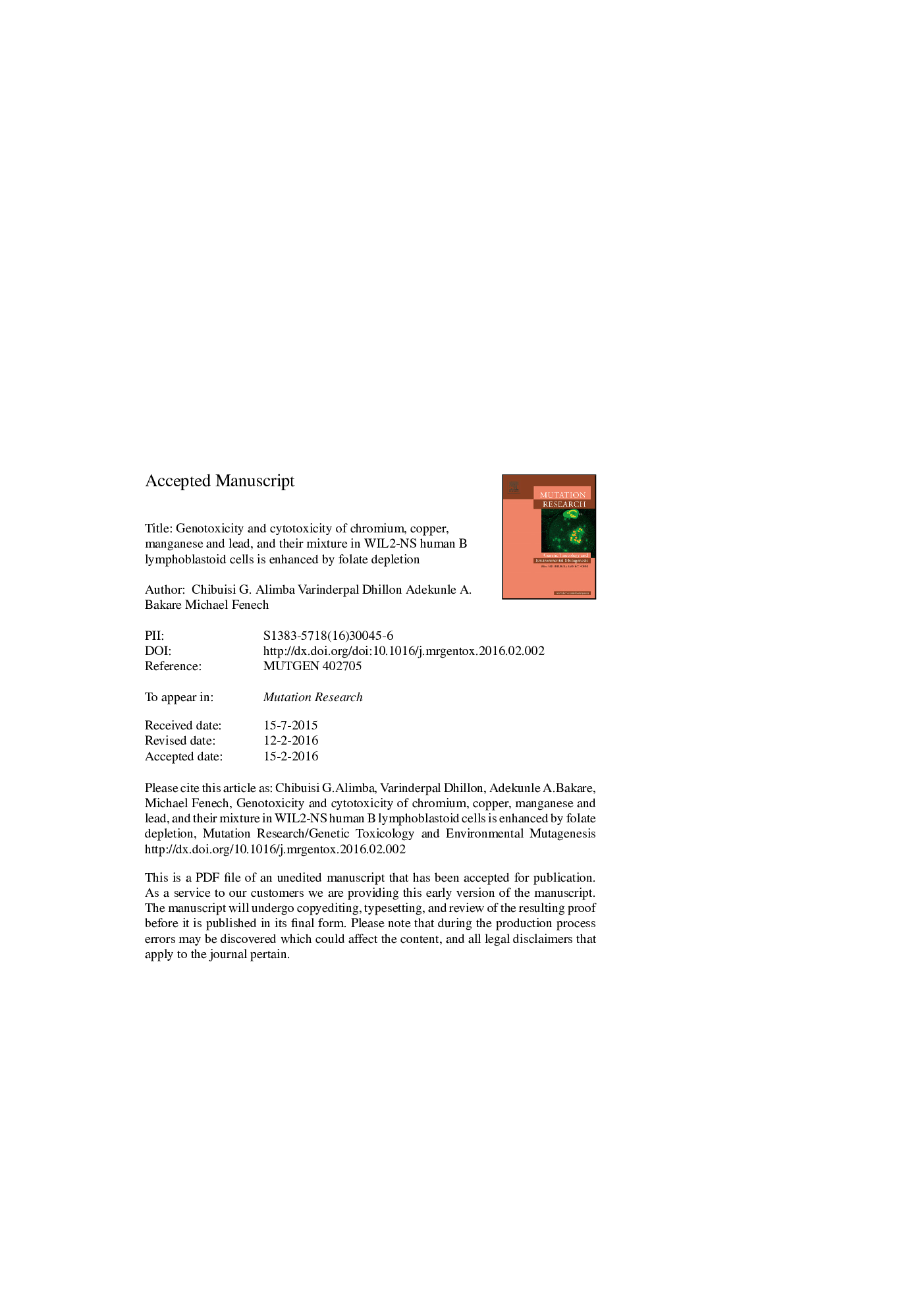| Article ID | Journal | Published Year | Pages | File Type |
|---|---|---|---|---|
| 8456280 | Mutation Research/Genetic Toxicology and Environmental Mutagenesis | 2016 | 37 Pages |
Abstract
Heavy metal exposure or dietary deficiency is associated with increased genetic damage, cancer and age-related diseases. Folate (vitamin B9) required for DNA repair and synthesis may increase cellular susceptibility to metal induced genotoxicity. This study investigated the interactive effects of folic acid deficiency and sufficiency on genome instability and cytotoxicity induced by chromium (VI), copper (II), manganese (II), lead (IV), and their mixture (CCMP) in WIL2-NS human B lymphoblastoid cells. WIL2-NS cells were cultured in folic acid deficient (20 nM) and replete (2000 nM) RPMI 1640 medium treated with different concentrations (0.00-1000 μM) of the metals and CCMP for 48 h. Chromosomal damage and cytotoxicity were measured using the Cytokinesis-block Micronucleus Cytome assay. CCMP, Cr, Pb, Cu and Mn induced concentration dependent, increases in cells with chromosome damage (micronuclei, nucleoplasmic bridges, nuclear buds) and necrotic cells and decreased nuclear division index. The metals exhibited different cytotoxic and genotoxic potentials (CCMP > Cr > Pb > Cu > Mn) in both folate deficient and sufficient cells, with the cytogenotoxic effects being greater in folate deficient cells. Significant interaction between the metals and folic acid suggests that folic acid deficiency exacerbated cell proliferation inhibition and genome instability induced by metals. Folate deficiency, increasing metal concentration, and their interactions explained 3-11%, 74-92% and 4-12% of the variance of DNA damage biomarkers. In conclusion, exposure to the tested metals (0.01-1000 μM) increased chromosomal DNA damage in WIL2-NS cells and this was exacerbated by folate deficiency.
Related Topics
Life Sciences
Biochemistry, Genetics and Molecular Biology
Cancer Research
Authors
Chibuisi G. Alimba, Varinderpal Dhillon, Adekunle A. Bakare, Michael Fenech,
